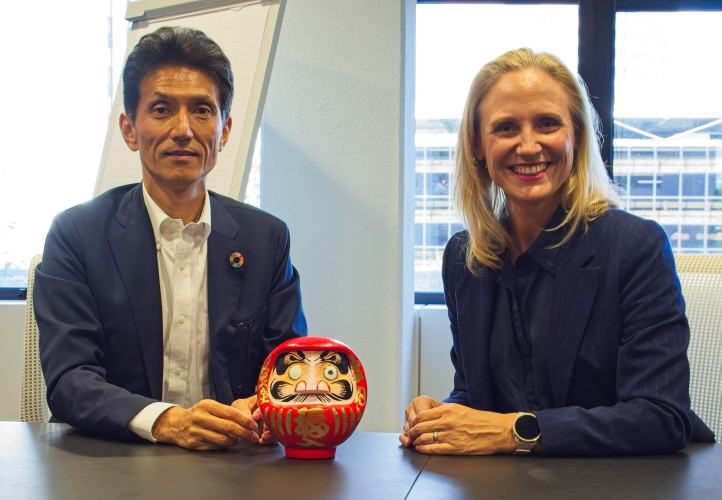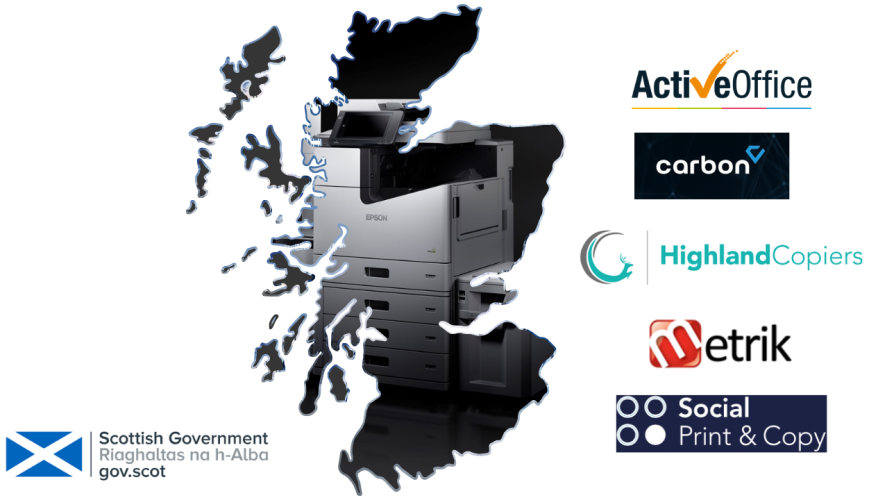Health professionals confident technology will “significantly improve” treatment success

-
67% believe big data will “significantly improve” diagnosis and treatment success
-
Over half (57%) identify 3D printing as “revolutionary”
-
76% think liability issues could inhibit innovation
UK medical workers are optimistic about innovation in healthcare over the next decade, an Epson survey released today has revealed. Nearly seven in ten (67%) medical professionals believe big data will significantly improve diagnosis and treatment success, while over half (57%) consider 3D printing a revolutionary force. While 76% think liability issues could hold back implementation of technology, there is general optimism that technological evolution will have a positive impact. With concerns over the effects of an ageing population, dwindling GP numbers and stretched resources in the NHS, the study lends added strength to arguments that embracing new technologies will be critical for the health service over the next ten years.
Better outcomes
Along with high expectations for big data improving patient treatments, nearly three quarters believe collaborative technologies will improve knowledge sharing between specialists. Waiting times are also expected to be cut, with 64% agreeing that 3D printing of organs and cells will speed up medical processes. Furthermore, 70% see remote monitoring improving patient care, with people being given wearables, feeding information on heart rates and blood pressure to a central data hub for analysis. 38% agreed that patients would be more proactive in managing their own health, diagnosis and treatment, perhaps using wearable technologies to check their own vital indicators.
There was also widespread agreement that virtual consultations would improve access to healthcare (69%), while 64% felt that printing personalised prescriptions will dramatically improve treatment outcomes. Healthcare professionals are optimistic about the benefits of technology on the sector. 36% thought more individually-tailored medication, powered by the combination of big data and personalised printing, would also bring benefits, while the same proportion (36%) indicated that technology would improve access to medical services.
Revolutionary technologies
A majority (57%) saw 3D printing, from organ and medicine creation to solving logistical issues, as revolutionary. Other technologies like remote monitoring (45%), surgical training via augmented reality (44%), organic and bio printing (42%) and surgery and diagnoses with the aid of robots and artificial intelligence (40%) were also identified as game-changing over the next ten years.
Barriers to implementation
While optimistic about the potential of technology, UK medical professionals did agree that there are barriers to implementation. Along with liability concerns, the cost of implementing new equipment was a potential obstacle for 81%. 78% also agreed that patients being reluctant to use new technology could inhibit implementation, while 73% indicated belief that patients might object to being remotely monitored. 68% also thought there might be ethical issues and dilemmas which delay adoption of new technologies.
Commenting on the findings, Epson Managing Director UK and Ireland, Rob Clark, stated, “clearly healthcare professionals agree technology will play a crucial role over the next ten years. With the challenges of an ageing population, technological innovation has the potential to address the most pressing concerns facing the NHS, such as stretched resources, patient access and waiting times”.
“However, to implement technology effectively, IT leaders must stay aware of the latest developments and launch consultation processes with patients and regulators. We simply cannot afford to miss the benefits of innovation over the next ten years, so collaboration between stakeholders to address and mitigate any potential issues is critical”.
-ends-
About the study
The two-phase research project was conducted by FTI Consulting. Phase one consisted of qualitative telephone interviews with 17 global futurists and European experts from various sectors from 22nd September-19th October 2016 to gain insights and develop hypotheses on the future of the workplace and the changing roles of the workforce leading up to 2025. Phase two consisted of a quantitative online survey conducted by FTI Consulting’s Strategy Consulting & Research team from 2nd-13th December 2016. Respondents included full-time employees across five major sectors (corporate, manufacturing, education, healthcare and retail) in workplaces across the United Kingdom, France, Germany, Italy and Spain in their local languages.
A total of n=7,016 full-time employees completed the survey. The breakdown of the respondents who completed the survey in each country are as follows: United Kingdom (1,329), France (1,308), Germany (1,427), Italy (1,526), Spain (1,426). The breakdown of the respondents who completed the survey in each industry sector are as follows: corporate (2,051), manufacturing (1,519), education (1,090), healthcare (1,215), retail (1,139).
The n=7,016 completes yields a 3% +/- margin of error with an industry standard 95% confidence interval. Please note that the standard convention for rounding has been applied and consequently some totals do not add up to 100%.
For further information on the research methodology or FTI Consulting’s market research services: Market.Research@fticonsulting.com
Global futurists and European experts interviewed
-
Jonathan Reynolds, Academic Director of the Oxford Institute of Retail Management (OXIRM), Associate Professor in Retail Marketing and Deputy Dean at Said Business School
-
Howard Saunders, Retail Futurist, Twenty Second & Fifth
-
Dave White, Head of Technology Enhanced Learning, University of the Arts London
-
Russel Stannard, Education Technologist and founder of www.teachertrainingvideos.com
-
Professor Darwin Cadwell, Research Director, Italian Institute of Technology in Genoa and Chair of the IEEE Robotics and Automation Chapter (UKRI)
-
Professor Alain Bernard, Research Director, Laboratoire IRCCyN; Vice-President, AFPR; Vice-Chairman, WG5.1 of IFIP; and member of CIRP Council in France
-
Clive Hickman, Chief Executive, Manufacturing Technology Centre
-
Christopher Barnatt, Futurist, ExplainingTheFuture.com
-
Gerd Leonhard, Futurist, The Future Agency
-
Ben Hammersley, Journalist, Technologist, Futurist
-
Brice Le Blévennec, CEO at Emakina
-
Clinton Wingrove, HR Futurist
-
Dr. Bertalan Mesko, Futurist, Founder of The Medical Futurist
-
Giuliano Noci, Professor
-
Richard Webber, Professor
-
Dr. Tobias Gantner, Healthcare Futurist, HealthCare Futurists GmbH
-
Mariano Corso, Scientific Officer
















